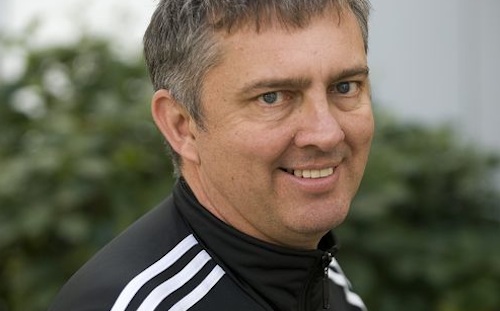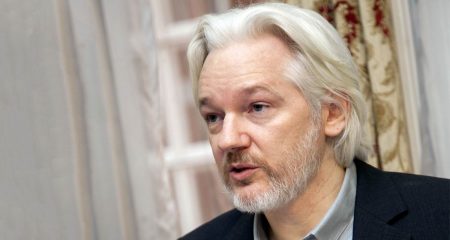
[By Chris Roper]
Truly, as @JeanJacquesRousseau tweeted the other day, “Man is or was born free, and he’s evrywhr in chains.” And as @iluvbigdaddy tweeted back, “but i like being in chains as long as theyre comfy + hidden”.
Oh, the sick, sick irony. Media organisations, the plucky little Davids in the corner of the ring, being battered by the grim Goliaths of governments trying to curtail freedom of the press, are now telling us that WikiLeaks is actually a bad thing and, to quote a site that really should know better, “some secrecy … is for the public’s good”.
Media organisations, we are told, need to “start questioning just how open information should be”. Journalists, I’d say, need to start questioning just what they believe in, and whether they really want to argue, with the ANC, that we should trust our governments to look after our welfare without the ultimate restraint of being found out.
The American line on WikiLeaks appears to be the classic paternal model. If you don’t let us look after the grown-up stuff, the little people will get hurt. Apparently, we are to worry about the people in other, less free societies (and, thanks to the confused editorials of anti-WikiLeaks publications around the world, we now know that freedom is not an absolute term).
If you let slip to an American diplomat that, in fact, Hamid Karzai is one shoe short of a Bush barrage, you’re going to get persecuted in Afghanistan. Which is a little rich, coming from the nation that put the pooper into wedding party, and invented the term “collateral damage” (defined by the US department of defence as “unintentional or incidental injury or damage to persons or objects that would not be lawful military targets in the circumstances ruling at the time. Such damage is not unlawful so long as it is not excessive in light of the overall military advantage anticipated from the attack.”)
Why would media organisations, committed to the sacred belief that they are the purveyors of truth and accountability, suddenly want to abrogate that hard-won responsibility to self-serving, narrowly nationalistic career diplomats and countries whose primary aim will always be the imposition of their own ideals and goals on others? I don’t know. In our country, perhaps the imminent threat of the media appeals tribunal has robbed them of their balls, and they’re starting to second-guess themselves.
These two viewpoints are evident in the comments left on websites, for example this one on the Mail & Guardian: “There is a reason why the term ‘confidential’ is applied to certain information. Knowledge can be dangerous in the hands of the ignorant. WikiLeaks makes for interesting reading but does not and will not make the world a safer better place. It will however, keep journalists employed as it gives you guys an unlimited source of material for your articles. Viva journalistic freedom — even if it undermines the security of the world at large!”
Both paternalism and the promotion of paranoia are encoded into that comment. We are to assume that some people are too ignorant to be privy to certain information, and that journalists who publish this information are self-serving, and make the world a dangerous place. Rather let governments look after their blissfully ignorant children.
Even worse than the paternal model is the one that argues that government correspondence can in some way be intimate, personal and private. According to one columnist, “free information evangelists” — and notice how a new term has been concatenated to imply that freedom of speech is a religious belief, rather than a secular right — “seemingly fail to appreciate that some secrecy (how many people know the contents of the intimate correspondence between you and your spouse?) is for the public’s good.” Not all of us are married to superpowers, I’m glad to say. A more likely relationship with a China or America is going to be pimp and ho, I fear.
Another argument against untrammelled freedom is best exemplified by this quote: “Ironically, the disclosures made by WikiLeaks might promote access to information, but by doing so, reduce the information that is, in principle, accessible. It will ultimately be counterproductive. Far from making us all equal, the transparency of the Internet will push the wielders of power further into the shadows of secrecy and subterfuge.”
This is an argument that suggests we stop exposing the secret, suspect dealings of governments, because if we do, it’ll become harder to expose the secret, suspect dealings of governments. It’s a circular argument that can only be fallacious.
Either we keep fighting to peel away the layers of lies and diplomatic evasions that governments use to cover up the illegal activities that they deem justifiable, or we give up and let them get on with their Abu Ghraibs and arms deals. Arguing for the relative nature of freedom of access to information is just handing our enemies a weapon to use when they most need it.
This is not an argument against responsible journalism. The fortunate five who are privy to early leaks from Julian Assange exercise editorial prudence. The Guardian, for example has “redacted some of the cables in order to protect a number of named sources and so as not to disclose certain details of current special operations”.
But it is an argument against taking sides with those attempting to limit access to government information, especially based on the notion that governments know best.
- Chris Roper is editor of the Mail & Guardian Online
Visit the Mail & Guardian Online, the smart news source
- Subscribe to our free daily newsletter
- Follow us on Twitter or on Facebook



